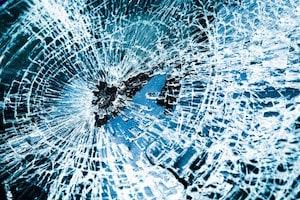for Over 25 Years
Car Accident Claims in California

Car accident claims in California give rise to many questions. Who is legally responsible for causing personal injury or wrongful death? What types of claims can be brought and against whom? After a car accident in Los Angeles, San Diego, Orange County or anywhere else in the Golden State, these and many similar questions are asked by the drivers, passengers and other victims involved in the crash. While every case is different, in general, there are some main categories of claims that arise from car crashes and numerous persons or entities who may be held legally responsible based upon the state of the law in CA as follows:
What Are the Different Types of Claims that Can Be Brought After a Personal Injury Auto Collision?
- Negligence. This is the most common allegation, namely, that some person or entity failed to act in a reasonable manner, which caused injury or damage.
- Negligent Entrustment. This is an allegation that arises when the owner of the vehicle loans or allows another to use his or her car, truck or SUV and that person causes an traffic mishap. If it can be shown that the owner knowingly or negligently entrusted the vehicle to another in a defective condition (e.g. with known mechanical problems) or allowed the driver to take control knowing that the driver was incompetent or unable to safely operate the vehicle.
- Negligent Hiring, Training and or Supervision by Employer of Employee Driver. This is discussed more fully here. This arises normally in the case of employer owned vehicles (such as semi-tractor trailers, delivery trucks and other commercial vehicles).
- Wrongful Death and Survival Actions. Unfortunately, some traffic collisions result in the death of either the driver or passengers. It is important to assess who may be able to assert claims on behalf of spouses, children, parents and other persons that may have been dependent upon the deceased person financially.
- Negligent Infliction of Emotional Distress. Established California law states that if a close relative or loved one of the injured person observes the incident and sustained emotional anguish and anxiety as a result, this may be actionable. ( Thing vs. La Chusa (1989) 48 Cal.3d 644).
- Loss of Consortium. This is a claim by one spouse for the loss of the support and service, love and affection, society and companionship, sexual relations and solace from the other, injured or deceased spouse.
- Products Liability. In auto crash cases, this can range from alleged manufacturing defects, failure to warn, breach of express or implied warranties and other related claims for any defective car, truck, SUV or component thereof such as tires, brakes, engine components, safety harnesses and air bags and any other auto parts.
Who are the Potential Defendants in an Car Crash Claim in CA?
These can include many persons or entities including the following:
- At fault driver of the vehicle.
- Owner of the vehicle driven by the at fault operator.
- Parents or legal guardians of a minor driver.
- Employer of the motorist.
- Automobile manufacturer, distributors, dealers.
- Rental Agencies.
- Service garages.
- Mechanics.
- Private property owners.
- Government agencies.
- Insurance Companies.
Why Is It Important to Retain a Personal Injury Attorney Immediately Following any Rear End Collision, Head to Head Smash Up or Other Traffic Calamity?
There is normally a two year statute of limitations for bringing a lawsuit for personal injuries in California. However, this deadline can be as short has six months if the potential defendant was a government agency. It is also important to determine which of the above claims may be viable and against whom out of all the potential defendants listed above should be named in any civil action. It is also critically important to promptly investigate all allegations regarding liability and damages and to preserve evidence so that the matter may be asserted in a way that maximizes the recovery to the injured party. For all these reasons and for the peace of mind of allowing a professional to handle the claim which, in turn, allows the aggrieved party time to seek medical treatment and reduce stress, it is critically important to consult with and retain a competent tort lawyer following a traffic mishap.












